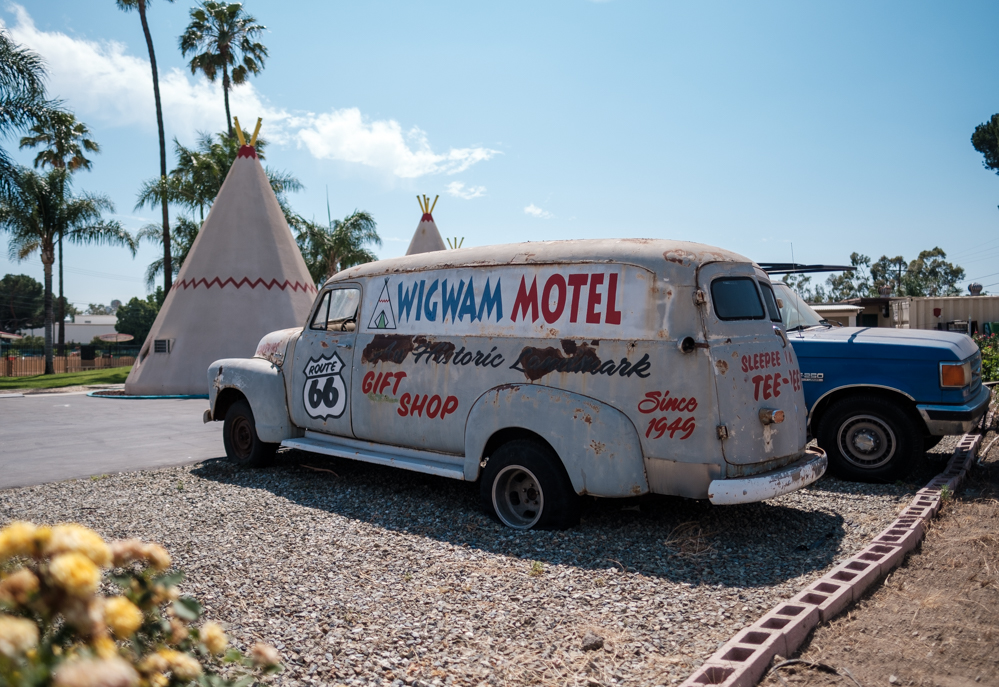Wigwam Motel / Route 66
Wigwam Motel on former Route 66 in San Bernardino. This is one of three surviving examples of a concept created by Frank A. Redford. These type of roadside attractions were an obvious insensitive exploitation and whitewashing of Native American heritage. Even the name illustrates this sort of cultural homogenization. A wigwam is actually more of a dome shape compared to the co-opted teepee form used by Redford.
This location would be the last "Wigwam Village"built. Frank lived in a larger on the property until his death in 1957. Hailing from Kentucky, he started his venture in Horse Cave, Kentucky in 1933. It was a lunchroom and gas station that he later added motel rooms to. Here is a full list:
#1: Horse Cave, Kentucky - 1933
#2: Cave City, Kentucky - 1937
#3: New Orleans, Louisiana - 1940
#4: Orlando, Florida (Built by Jerry Kinsley) - 1948
#5: Bessemer, Alabama - 1940
#6: Holbrook, Arizona (Built by Charles E. Lewis) - 1950
#7: San Bernardino, California - 1949
Wigwam Motel Since 1949.
Hopefully we've learned a lot since then.
















